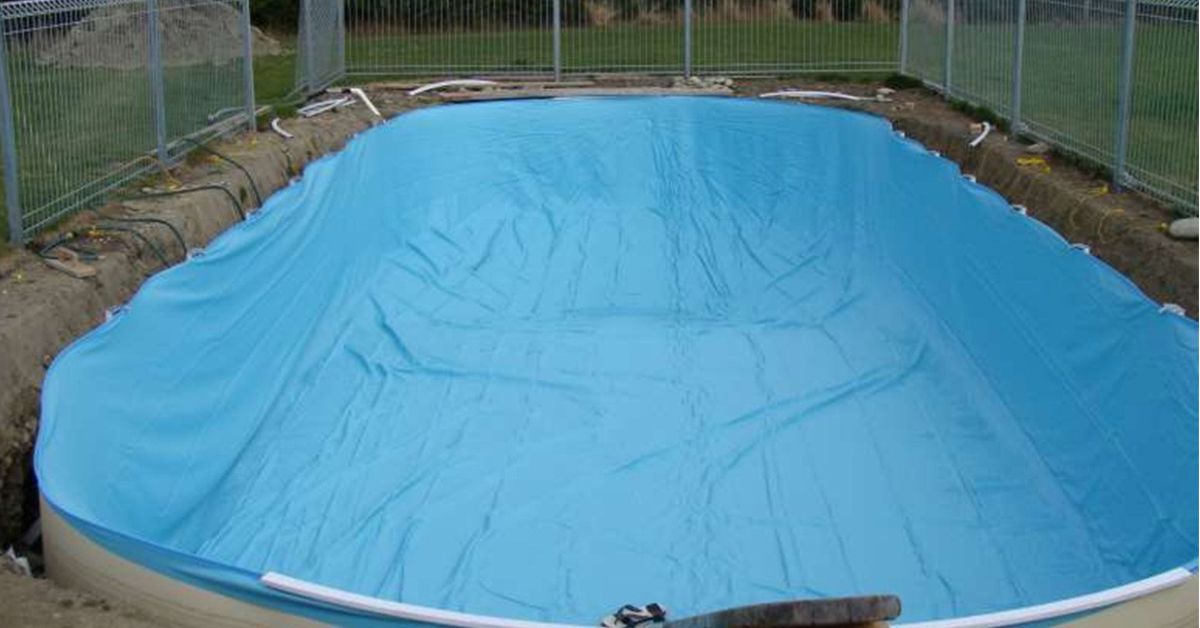Before the winter season, you always get worried about your pool, right? This worry isn’t pointless, as there are cons to not caring for the pool at such times. But what would worry do if necessary actions are not being taken. For this reason, we have jotted together six easy and simple steps to follow and close your above-ground pool.
As we collected information on this topic for you all, we came across a renowned pool builder named Sergio’s Pool Renovations. If you are looking for a trusted company to handle your work, contact them and enjoy tension-free pool services.
With that being said, let’s start our conversation and learn how to winterize above-ground pool and what steps to follow.
Importance of Understanding the Process
Properly closing your above-ground pool is very important for stopping high-priced damage.
It saves the pool from freezing temperatures, debris accumulation, and water chemistry imbalance. By regularly practicing this technique, that too with the proper guidance or professional help, you could shield your investment and amplify the lifespan of your pool.
Simultaneously, above ground pool drain is also a significant concern, that can be resolved when you have proper knowledge on this topic.
List of Benefits of Closing an Above-Ground Pool
- Preventing Damage: Properly closing your pool prevents winter damage from freezing temperatures, particle buildup, and water imbalance.
- Protecting Investment: Understanding the system safeguards your pool funding, minimizing the need for costly upkeep or replacements.
- Ensuring Safety: Closing correctly reduces wintry weather dangers, such as slippery surfaces or electric dangers, offering protection.
- Smoother Reopening: Thorough winterization leads to a less complicated spring reopening, making an allowance for faster leisure of your pool.
- Compliance and Warranty: Following manufacturer suggestions guarantees assurance of compliance and coverage for potential problems.
Importance of Professional Assistance
Many tasks require professional help. Closing an above-ground pool is one of those. Getting help with this will allow you to be more relaxed and more sure about the precision of the work done. Consider the essential reasons for seeking professional assistance to close above-ground pool.
- Expertise: They will give you knowledge and bring better experience than you are working on.
- More Detailing: They will leave no stone unturned in their quest for pool perfection and spare no effort to safeguard your investment.
- Manufacturer Specifications: They can provide recommendations and the industry’s best practices, ensuring your pool receives the care and treatment it deserves.
- Helps You Save Money: Rather than spending money on things in chunks, they will suggest you invest in a way that profits you in the long,
- Peace of Mind: With professionals at the helm, you can rest assured that your pool is in capable hands.
Steps to Close Above-Ground Pool
After understanding the basics, let’s discuss closing the above-ground pool at lower temperatures. That prevents the loss of heat above ground pool when spring comes after winter.
Gather Necessary Supplies
Like any other procedure, the first step will require gathering all the required equipment. This will include a couple of things. So you need to not worry after starting the process to wait again for a forgotten item. To simplify the task, we have made a list for you to gather first and foremost.
- Winter pool cover
- Pool chemicals
- Skimmer net
- Pool Vacuum
- Winterizing plugs
- Submersible pump
Before proceeding to the second step, have a backup if needed. If you don’t want to find a leak in above ground pool, keep reading the following steps.
Clean and Balance and then Lower the Water
Now that you’ve assembled your supplies, it’s time to roll up your sleeves and dive into the cleaning and balancing phase. This is the time to thoroughly clean your pool, remove debris, and brush the walls and floor to ensure a pristine surface.
This enhances the aesthetic appeal and prevents algae and bacteria from taking hold during the winter slumber.
Then, you can balance the water chemistry.
With the water chemistry balanced to perfection, it’s time to bid farewell to some of your pool’s liquid content. Lower the water level below the skimmer and return lines to safeguard against potential freezing damage and prepare your pool for its winter cocoon.
Winterize the Plumbing
Let’s start with the question, “How to winterize an above-ground pool?” This is not our question but that of many of the readers here. But we can ensure that we offer help to get the answer. To prevent it from becoming a casualty of the cold, it’s essential to follow this step.
You can first drain water from the pump, filter, heater, and any other equipment connected to your pool’s plumbing system. Then, disconnect hoses, valves, and fittings removing all residual water to prevent freezing and potential damage. Next, seal off any open ports and fittings with winterizing plugs, creating a watertight barrier against the elements.
Winterize above-ground pool to ensure your plumbing system remains protected and intact throughout the winter, so, in the warmer seasons you can get back on business.
Protect Pool Equipment
When you want to close above-ground pool, an important step is protecting pool equipment to use later. After successfully finishing the plumbing system safely winterized, you must pay attention to protecting your pool equipment. There is a high chance that if left lenient, equipment will rust and go to waste later.
Store pool equipment such as ladders, steps, and accessories in a dry, sheltered location away from snow, ice, and freezing temperatures. Scrutinize each item to ensure it’s free from damage and corrosion before tucking it away for winter slumber.
When you are closing above-ground pool for winter, you are doing it with the intent to safely put the equipment aside to bring it then out when its spring time again.
Install the Pool Cover
In the winter, after you have followed all the above-discussed pointers, you must also ensure that the cover is securely anchored and taut, forming a snug barrier against leaves, debris, and inclement weather.
This not only keeps your pool clean and pristine but also prevents damage and prolongs the life of your cover. Don’t worry about your pool as you step back to admire your wintertime in comfort. It will be safe and tucked away, shielded from the harsh realities of winter by its protective cover.
By now, you have already considered aspects regarding the backwash pool, protecting the equipment, winterizing the above-ground pool, and much more.
Prepare for Spring Opening
Now, you have done everything in your hands, but to double-check and get the best suggestion, call a professional. This will inform you about all the missing points that anyone can miss if you do not practice this process regularly.
When following the steps, for instance, when you winterize the above-ground pool or protect pool equipment, you might have yet to think to follow some tactics that a professional can suggest you follow now.
As you gaze upon your closed and cocooned pool, take pride in knowing that you’ve done everything you can to protect and preserve it throughout the winter months, ensuring many more seasons of swimming enjoyment to come. You can even get assistance from a professional pool renovation company in Pennsylvania.
Safety Reminders
We have made a checklist to ensure you have followed all the necessary precautions. Take a screenshot, print it out accordingly, and follow all the tasks mentioned here.
| Aspects | Checks |
| Wear appropriate protective gear. | |
| Keep children and pets away from the pool area. | |
| Exercise caution around pool equipment. | |
| Follow manufacturer instructions for chemicals. | |
| Insulate electrical connections. | |
| Use caution on wet surfaces. | |
| Keep a first aid kit nearby. | |
| Store pool chemicals safely | |
| Verify professional credentials | |
| Prioritize safety above all else. |
Lastly…
This blog has covered all aspects that could answer your questions, such as “How to close an above-ground pool?” Read it thoroughly, and feel free to revisit it whenever necessary.
Closing a pool demands meticulous attention to detail, from selecting the right equipment to understanding the process intricacies. Professional assistance ensures a seamless closure, sparing you from potential mishaps or oversights.
Essential equipment includes pool covers, winterizing chemicals, and proper drainage tools.
Professionals possess the expertise to navigate complexities like balancing chemical levels, preventing damage from freezing temperatures, and safeguarding equipment from corrosion. Their guidance minimizes risks and ensures a hassle-free closure, safeguarding your investment and prolonging the pool’s lifespan.
FAQs
How do you choose above above-ground pool by yourself?
After considering the size, material, shape, and budget, you can seek professional help and choose an above-ground pool.
What chemicals do I need to close my above-ground pool?
Chemicals like chlorine shock, algaecide, pH decrease, and winterizing chemical kits are essential for closing your above-ground pool.
How far down do you drain above ground pool for winter?
The pool water level should be below the skimmer and return openings, typically about 4-6 inches below.
Should you shock your above-ground pool before closing?
Shocking it before closing will prevent algae and bacteria from growing in your pool during winter.






